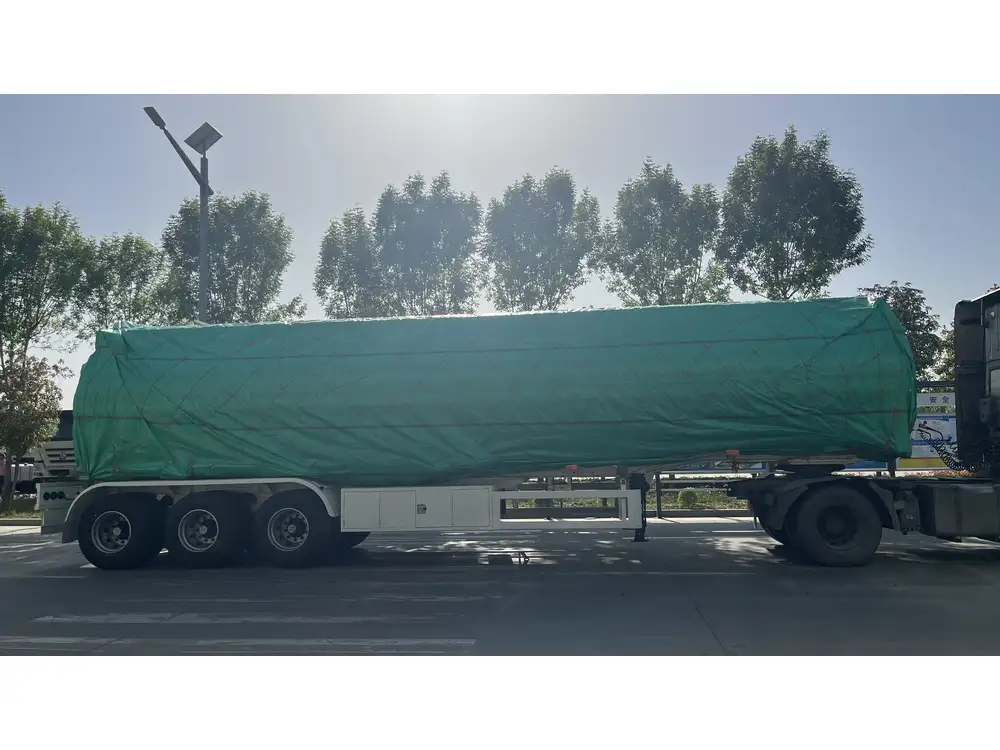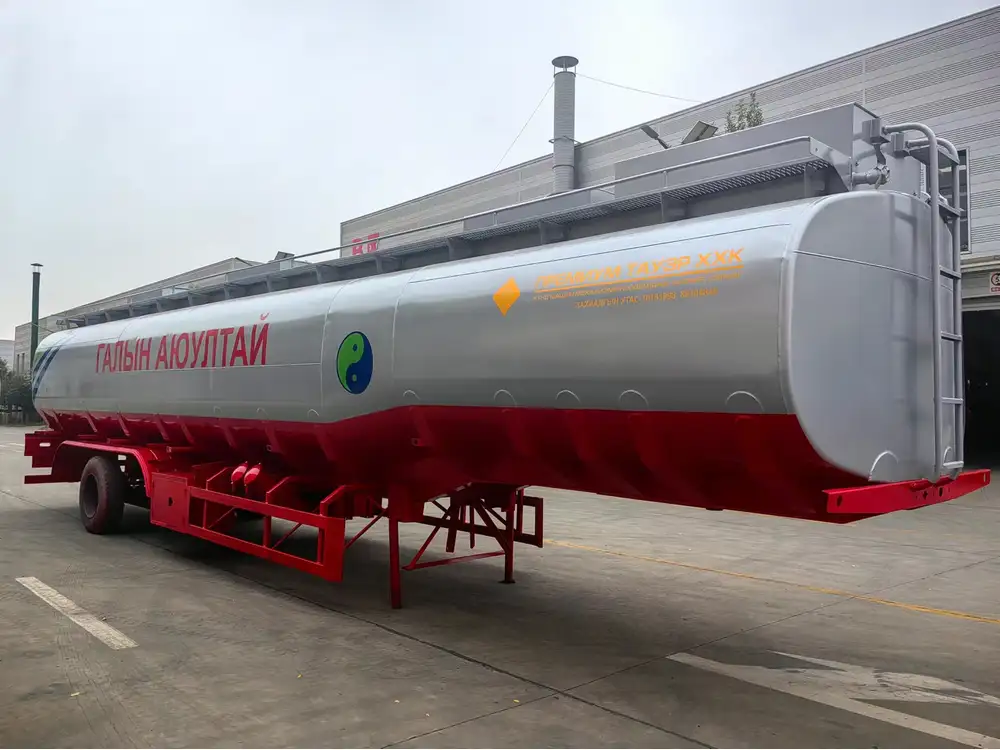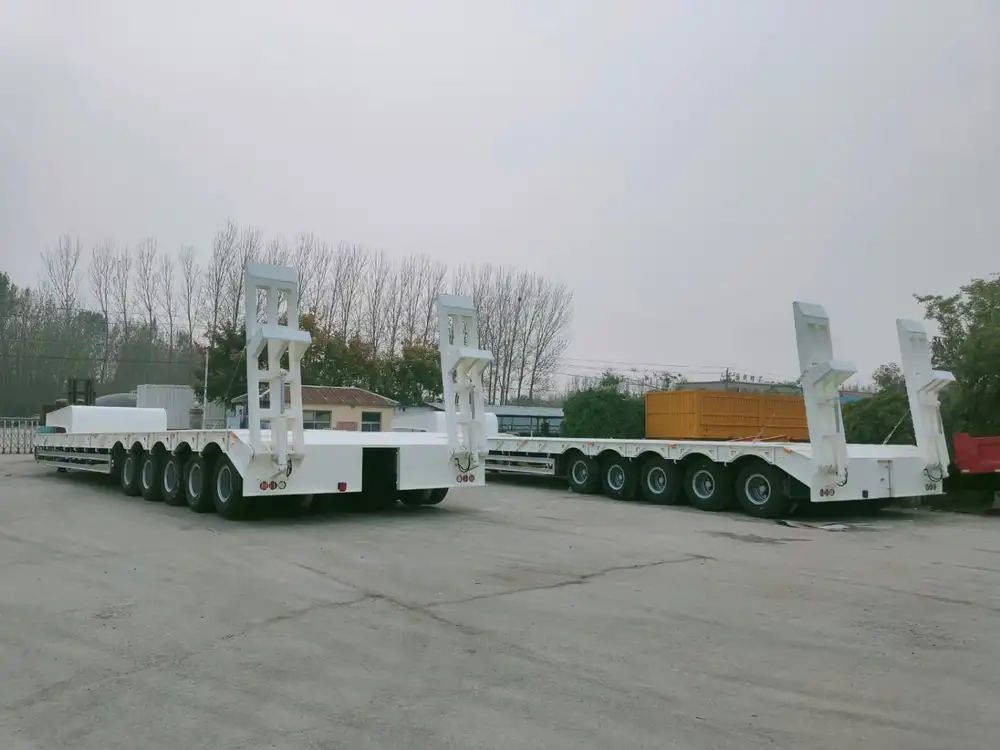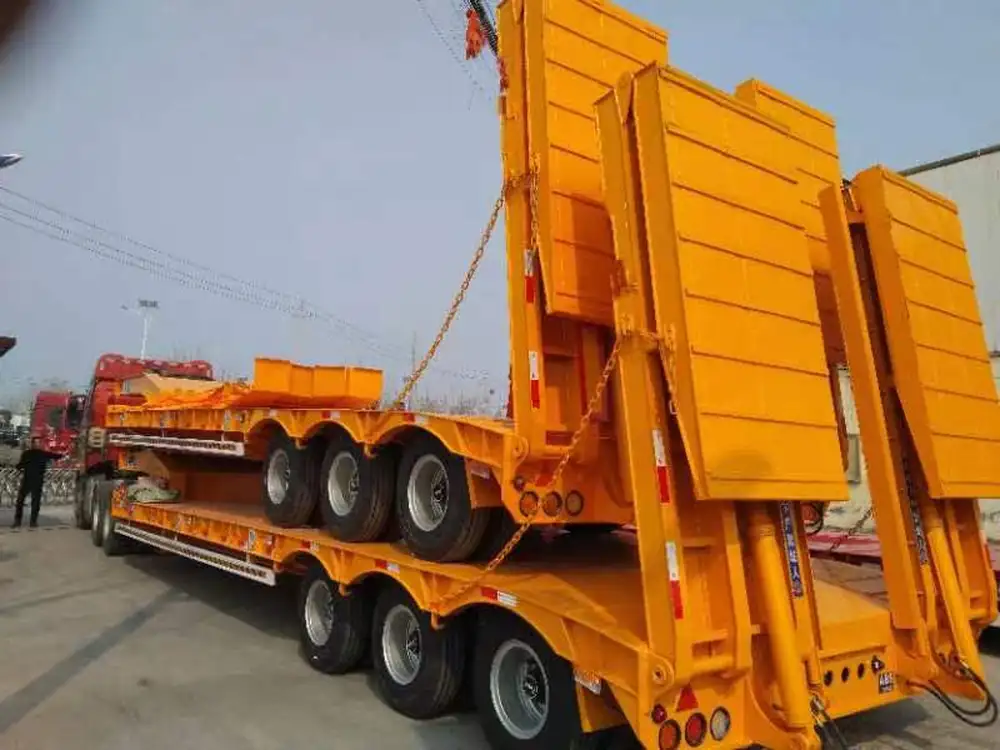In the territory of transportation logistics, understanding various trailer services is paramount. Navigating the plethora of vehicle types and services can be daunting for businesses and individuals alike. This guide offers an in-depth analysis of pickup and flatbed trailer services, elucidating their characteristics, functionalities, and the industries that primarily employ them.
What Are Pickup and Flatbed Trailers?
Understanding Pickup Trailers
A pickup trailer is a specialized vehicle designed for transporting goods over short to moderate distances. Typically, these trailers complement pickup trucks, enhancing their load-carrying capacities. They range in size and weight, making them suitable for a multitude of tasks, from moving heavy materials to transporting recreational equipment.
Features of Pickup Trailers:
- Versatility: Designed to load a variety of goods.
- Ease of Use: Often equipped with simple hitch systems, enabling straightforward attachment and detachment.
- Durability: Constructed to withstand various weather conditions and rough handling.

The Role of Flatbed Trailers
On the other hand, a flatbed trailer is characterized by its open, flat surface, lacking fixed sides or a roof. This design facilitates loading and unloading operations, making it an ideal choice for carrying oversized items or freight that does not require protection from the elements.
Key Features of Flatbed Trailers:
- Accessibility: Items can be loaded from the sides or top, which is crucial for heavy machinery, lumber, or construction materials.
- Stability: Wide weight distribution enhances safety during transit.
- Size Variety: Available in multiple lengths and capacities, tailored for diverse industries.
Comparison Table: Pickup Trailers vs. Flatbed Trailers
| Feature | Pickup Trailers | Flatbed Trailers |
|---|---|---|
| Design | Enclosed or open bed | Open, flat surface |
| Loading Accessibility | Rear, side, or top loading | Side and top loading |
| Best Use Cases | Smaller loads, recreational items | Heavy machinery, construction materials |
| Weather Protection | Typically has some weather cover | No weather protection |
| Size Options | Generally smaller | Available in various lengths |
Key Services Offered by Pickup and Flatbed Trailers

Pickup Trailer Services
- Transportation of Goods: Efficiently designed for local deliveries and short-haul services.
- Waste and Junk Removal: Perfect for residential and commercial cleanouts.
- Moving Services: Excellent for transporting household items with a higher weight limit than standard pickup trucks.
Flatbed Trailer Services
- Construction Material Transport: Ideal for transporting heavy building materials like steel, concrete, or lumber.
- Equipment Hauling: Capable of accommodating machinery like excavators or tractors.
- Oversized Freight Transport: Well-suited for large, cumbersome items that cannot fit within standard trailer confines.
Case Study: Choosing the Right Trailer Service
Consider a construction company needing to transport a new excavator to a job site. The company can benefit from flatbed services due to the quick-loading capabilities and maximum space afforded by the trailer’s design. Conversely, a landscaping business may opt for a pickup trailer to transport plants, soil, or tools, appreciating the added weather resistance when it’s covered.

Common Applications Across Industries
The multifaceted characteristics of pickup and flatbed trailers have led to their adoption across various industries:
- Construction: Essential for transporting materials and equipment.
- Agriculture: Used to haul produce, machinery, and feed.
- Logistics and Freight: Crucial for moving diverse cargo efficiently.
- Recreational Services: Useful for transporting boats, ATVs, and other leisure vehicles.
Environmental Considerations
In recent years, transportation has faced increased scrutiny concerning its environmental impact. Various manufacturers now offer trailers designed to reduce emissions and improve fuel efficiency. Opting for lightweight materials and innovative technology contributes significantly to sustainability efforts while upholding service efficiency.
Factors to Consider When Choosing a Trailer Service

Load Capacity
Understanding the weight and size limitations of the trailer is crucial. Each trailer type offers varying capacities, and for transporting heavy or bulky loads, the right choice spares you from logistical nightmares or costly delays.
Cost Efficiency
Comparing different service providers based on pricing structures, hidden fees, fuel surcharges, and the overall value of services rendered remains critical. Budgeting for rental and operational costs can lead to significant savings.
Compatibility with Transport Vehicles
Ensure your transport vehicle can adequately handle the selected trailer. Compatibility issues can lead to unsafe driving conditions and gear mishaps.

Regulatory Compliance
Depending on the weights involved or the goods being transported, specific permits may be required. Ensure that your chosen service provider is compliant with local regulations to avoid legal complications.
Frequently Asked Questions
What Is a Pickup and Flatbed Trailer Service Called?
Services that specifically cater to these trailer types are often named based on their capacity to handle transportation needs, such as “trailer rental services,” “transport logistics provider,” or simply “freight services.” Depending on the region, such services might be colloquially known as “trucking” or “hauling” services.

What Types of Loads Can Be Transported?
Both trailer types can accommodate diverse loads:
- Pickup Trailers: Perfect for household goods, short-distance deliveries, landscaping materials, and recreational equipment.
- Flatbed Trailers: Best for construction materials, machinery, furniture, and large shipments needing open space.
How Do I Know When to Use a Pickup Over a Flatbed Trailer?
If the load is smaller, enclosed, or needs some weather protection, a pickup trailer might suffice. However, for larger, bulkier, or industrial items, a flatbed trailer is better suited, given its accessibility and space.
Solidifying User Conversion
To foster user conversion effectively, consider implementing the following strategies on your platform:
Engaging Visuals: High-quality images and videos depicting trailer models and practical applications can capture user interest, illuminating their decision-making process.
Clear Call-to-Actions (CTAs): Strategically placed CTAs inviting users to request quotes, book services or access additional resources, can significantly enhance user engagement.
Customer Testimonials: Building trust through reviews and ratings from previous clients establishes credibility and drives conversions.
Educational Resources: Blogs, videos, and infographics that detail best practices for trailer use increase user engagement while educating the consumer on their options.

Conclusion
Understanding the nuances of pickup and flatbed trailers is essential for both individuals and businesses. By addressing the specific requirements of each service type, evaluating their unique functionalities, and considering industry applications, you can make informed choices about your transportation needs.
As we navigate an increasingly complex logistics landscape, embracing technology and sustainability will ensure that our transportation choices remain efficient and environmentally responsible. Emphasizing quality service, transparency, and user education can effectively facilitate conversion while addressing the evolving demands of the market.
By maintaining a keen awareness of these elements, you not only enhance your service offering but also position your enterprise as a trusted provider in the competitive trailer service arena.



